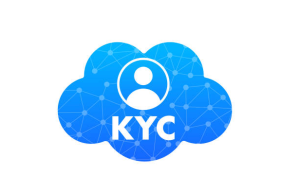In an era dominated by the internet, e-commerce has emerged as a powerful avenue for entrepreneurs to start and grow their businesses. With the convenience of online shopping and the internet’s global reach, e-commerce offers countless opportunities for Small business ideas. This article explores various e-commerce business ideas that can lead to profitability and growth in the digital age.
Dropshipping: A Low-Risk Venture
Dropshipping is a popular e-commerce model that allows entrepreneurs to sell products without holding inventory. In this business, you partner with suppliers who handle inventory and shipping while you focus on marketing and customer service. This low-risk approach minimizes upfront costs and is ideal for those new to e-commerce.
Print-on-Demand: Customized Merchandise
Print-on-demand businesses enable you to create and sell custom-designed products like apparel, mugs, and phone cases. You only produce items when an order is placed, reducing inventory costs. This business model particularly appeals to creative individuals looking to monetize their designs.
Niche Online Stores: Focused Product Lines
Choosing a niche market and creating an online store that caters to its specific needs can be highly lucrative. Whether passionate about sustainable fashion, organic beauty products, or unique pet accessories, serving a niche audience can help you stand out in a crowded e-commerce landscape.
Subscription Boxes: Recurring Revenue
Subscription box services have gained immense popularity in recent years. Curate a product selection that aligns with a specific theme or interest and offer customers a subscription plan. This model provides predictable recurring revenue and fosters customer loyalty.
Handmade and Crafted Goods: Artisanal E-Commerce
Consider selling them online if you’re skilled at creating handmade or crafted items. Platforms like Etsy are tailored to artisans and crafters. Showcase your unique creations to a global audience and connect with buyers who appreciate craftsmanship.
Online Thrift Stores: Vintage and Secondhand Fashion
The sustainability trend has fueled the growth of online thrift stores. You can source vintage and secondhand clothing, accessories, and collectibles to sell online—this eco-friendly approach to e-commerce appeals to consumers seeking sustainable shopping options.
Digital Products: Knowledge Monetization
E-books, online courses, and digital downloads offer a scalable e-commerce opportunity. If you possess expertise in a particular field, share your knowledge through digital products. Once created, these items require little to no overhead costs and can generate passive income.
Printables and Templates: Creative Digital Goods
Create printables and templates for various purposes, such as planners, worksheets, and social media graphics. These digital products are in high demand and can be sold repeatedly without restocking inventory.
Affiliate Marketing: Promoting Other People’s Products
Affiliate marketing involves promoting other companies’ products on your website or social media channels and earning a commission for every sale made through your referral. It’s a low-risk way to monetize your online presence and complement other e-commerce efforts.
Online Consulting and Coaching: Service-Based E-Commerce
Leverage your expertise by offering online consulting or coaching services. Whether you’re a business consultant, fitness coach, or life coach, you can provide one-on-one guidance through video calls and webinars, creating a thriving e-commerce business.
Conclusion
E-commerce is a dynamic field with endless possibilities for small business success. Whether you dropship, sell handmade goods, offer digital products, or explore other avenues, the key to thriving in e-commerce is to deliver value to your customers, build strong relationships, and stay adaptable in an ever-evolving online marketplace. By embracing e-commerce business ideas that align with your interests and expertise, you can embark on a fulfilling entrepreneurial journey in the digital age.





